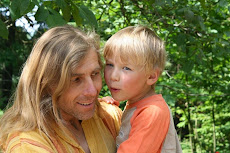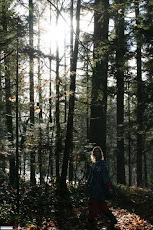Empty. Desolate. Our ideal communal property feels like it's been ripped through by a tornado. Our dear neighbours have left.
When we bought this property, it was the beautiful 5 acres, the barn, the farm, the trees that made it feel perfect. But then we found out that it came complete with a neighbour family of 3 kids. So we instantly had 5 children on our land, then aged 4,5,6,7 and 8. Various renting families and others in nearby houses have bolstered the gang to as many as a dozen, but these five have been the core.
When I think about the most beautiful part of our children's, and our family's, early years, it will always be these children. Weekend mornings we would wake up to a happy bubble of whispers and movement and games and singing and conspiring of 5 or more children in the living room. Sarah and I would lie in bed thinking that Adam and Patty may think they're getting the best of this deal by getting to sleep in, but we get to wake up to this happiest of sounds, then spend our morning puttering and interacting with these beautiful growing children.
The tell-tale rattling sound of the front-door window always makes our boys jump out of whatever they are doing to run to the door - "The neighbours are here!" Driving home from anywhere, especially from a trip away, we always look up the driveway to see if they're home, the boys usually tumbling out of the car at the bottom of the driveway to run next door and check in.
Over the 6 years, different passions and routines came and went as the kids grew, including:
- board games (Settlers of Cataan, yatzee)
- arts (drawing, leggo, origami)
- bow and arrow making
- selling flowers at the roadside stand
- bike jumps, skateboards, scooters
- water fights
- sledding and snowboarding and snowplay
- sports (street hockey, softball, basketball, air hockey...)
- music (Annie, country, then Adelle, Waving Flag, Macklemore...)
- hockey cards, hockey cards, and more hockey cards
- "hanging out" and whispering
And oh ya, those kids came with parents. Wonderful parents who cared for our children with love, shared parenting ideas and challenges openly with us, included our kids in their outings and trusted us with their precious young-uns unquestioningly. Wonderful adults who handed us keys to their spare car on our first day here - "Here, this can be your spare car too." Friends who shared meals, fires, tools, food. People we could depend on.
We were supposed to keep growing up together. See them graduate, get married. Instead, they have left for California. The driveway is empty, the front door window doesn't rattle, the strongest thread of this childhood tapestry has been broken. We can't tell bored, bickering siblings to "Go to the neighbours!" I don't have a ready posse of 10 kids to help corral the buffalo when it's time to take him for processing in September (see photo below).
So we must redefine what this land means to us. We still have amazing land, beautiful long-term renters, good kids less than a minute walk away, and an extended community to reach out to. Maybe this is a call for us to strengthen those connections, now that the easiest and naturalest of communal children has ended. And to stay open to whatever new family or people move in, and what new magic can be created with them.
So, there's not only a house for sale in Cowichan Station, but the potential for community. For 6 years it took the form of this amazing free flow of children and energy. That will never happen again in the same form, and this writing is a form of celebrating and releasing that pattern so that there's room for someone and something new to take its place.
Write to Renew
-
One of our previous graduates, the talented Jay Nahani, is leading us in a
Write to Renew workshop June 14th. For writers and non-writers alike, this
one-d...
























